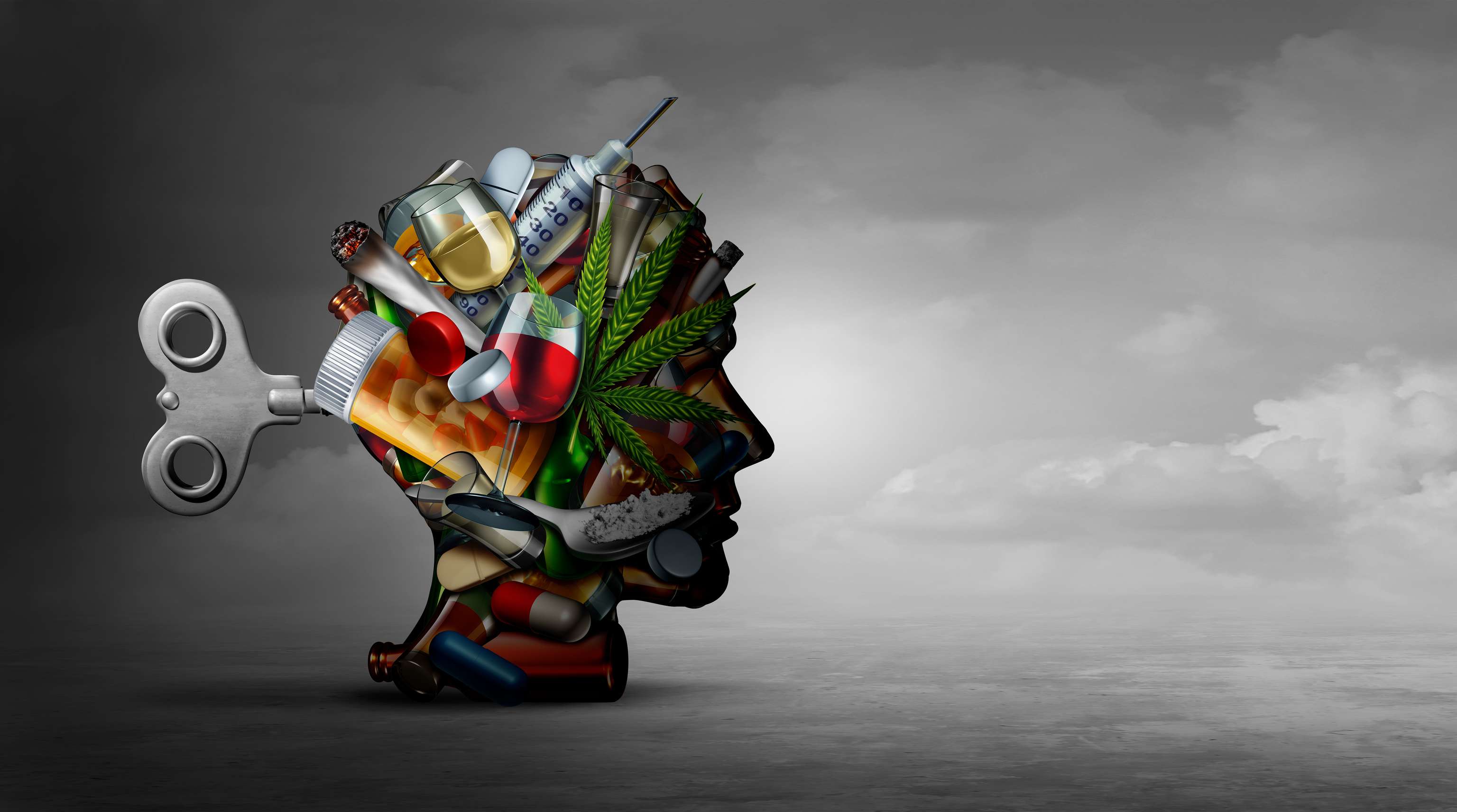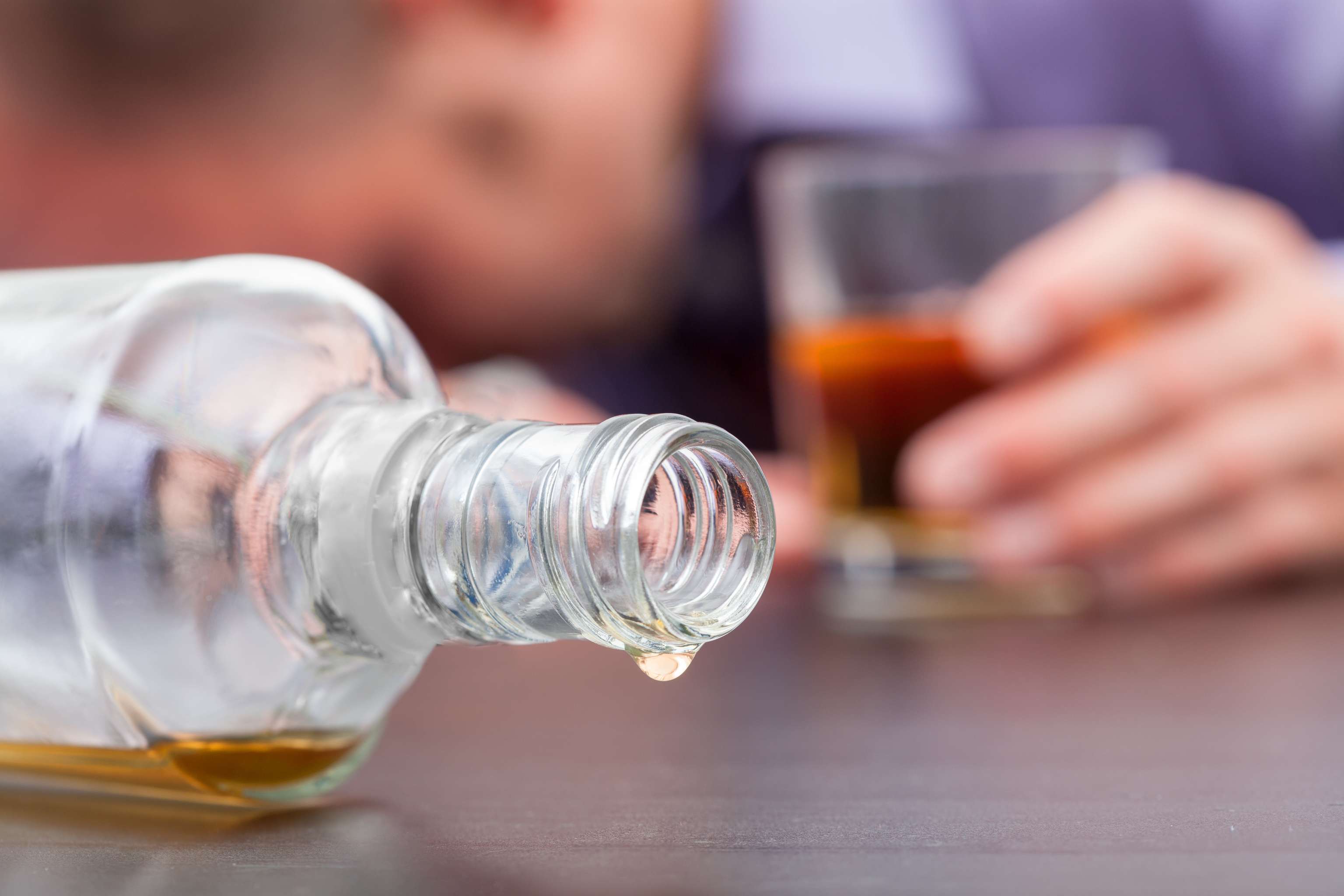Different addictions: triggers, consequences and ways out
External editorial

Nicotine addiction
Smoking is one of the most widespread addictions in German society - and is often taken lightly. Yet nicotine addiction has a strong impact on health and, along with a lack of exercise and an unhealthy diet, is one of the biggest risk factors for serious or even fatal illnesses. Around 26.2 percent of people in Germany are addicted to nicotine. Despite a downward trend over the past few years, this represents an enormously large proportion of the population. It is therefore hardly surprising that around 140,000 people die in this country every year as a result of active smoking. But even passive smoking can be fatal, accounting for about two percent of deaths. Accordingly, a nicotine addiction is a great burden not only for the addicts themselves, but also for their social environment.
The reasons why someone starts smoking are individual. Curiosity or peer pressure often play a role. In some scenes, cigarettes are still considered "cool," despite all their risks. Once you take a drag on a cigarette, however, you are not yet addicted. Instead, a certain habituation effect must occur, and so in the long run both a psychological and a physical dependence develops. The latter is caused by nicotine, because it is a highly addictive substance that acts directly on the brain's reward system. Those who are addicted to nicotine and want to stop smoking must therefore act on both levels, and certain "trigger" situations can become a problem in this regard; in other words, the power of habit. The cigarette after a meal or sitting together with friends who also smoke can therefore trigger a great deal of addictive pressure, and it is not easy for those affected to resist this. What can they do about it?
There is no one proven strategy for quitting smoking. Each addiction problem is highly individual and must also be treated accordingly. As just mentioned, however, it is essential to work on both the physical and mental levels in order to defuse all "triggers". To combat the physical dependence on nicotine, substitutes such as nicotine patches are often used to slowly wean the body off. Their dose is slowly lowered until those affected can manage without nicotine and still not feel any addictive pressure - at least in the form of physical withdrawal symptoms. The psychological level is somewhat more complicated, and here the addictive pressure can last a lifetime, depending on the severity and duration of the addiction. In other words, sufferers must repeatedly resist the desire for a cigarette, especially in the situations already mentioned. Behavioral cessation programs have the highest success rate in this respectThe main reason for this is that smoking cessation programs are often not targeted at the real causes of the addiction.
Alcohol addiction

While smoking is widely accepted in society, this is less true of alcohol addiction. Those affected therefore usually try to hide their addiction from their social environment. As soon as they find out about it, the addiction is already well advanced and with it any health problems. In the long term, the constant consumption of alcohol leads to damage to the nerves, the organs and the immune system. The consequences are, for example, an increased risk of cancer, various heart muscle complaints, the so-called Korsakow syndrome or cirrhosis of the liver as a typical "alcoholic's disease". The risk is correspondingly high that alcoholism will sooner or later end fatally, and those affected therefore have a significantly shortened life expectancy. But the psyche and other areas of life, such as social or professional life, also suffer from alcohol addiction. At some point, everything for the addicted person revolves around the question of how to maintain their level.
The problem with alcohol addiction is that it develops gradually and is therefore often not noticed by the social environment at the beginning. After all, the fact that someone drinks alcohol in public does not yet expose him or her as an addict, unlike smoking, for example. It is therefore not always easy to define the point at which normal consumption has become an abnormal addiction - and those affected themselves often do not want to recognize their problem for a long time. As a result, it usually takes a long time before they are ready to seek the help they need to beat their addiction, and by that time the consequences are already severe at all levels. However, this does not mean that it is not still possible.
Overcoming a full-blown alcohol addiction on your own is extremely difficult. Those who take countermeasures early on and abstain from alcohol often still have good chances of success. However, if there is already a strong mental and physical dependence, professional help is urgently recommended. Self-help groups such as "Alcoholics Anonymous" are a popular place to start in order to save face. After all, alcohol addiction is often accompanied by a great deal of shame. However, for those who are willing or otherwise unable to get off the bottle, alcohol withdrawal in a special clinic is the most promising choice. On the one hand, this involves a physical detoxification, because the body can recover amazingly well and quickly from alcohol consumption - and the shorter the addiction lasted, the lower the risk of permanent damage. On the other hand, those affected are psychologically stabilized in order to minimize the relapse rate after withdrawal. In some cases, several attempts are nevertheless necessary to overcome alcohol addiction permanently as well as in difficult life situations.
Drug addiction
Just like alcohol and nicotine addiction, drug addiction belongs to the so-called substance-related addictions. This means that in addition to the psychological dependence, a physical dependence also develops. In this case, however, those affected can be addicted to different substances. These include, for example, prescribed or non-prescribed medication, snorting substances or illegal substances such as opiates, cocaine, hallucinogens, cannabis and synthetic drugs. In the case of drug addiction, it is thus necessary to differentiate what people are addicted to, because the consequences can also vary accordingly. For example, there are drugs that can lead to physical problems and even death comparatively quickly, such as heroin or crystal meth, while with others the late effects only become apparent after many years, for example with cannabis or cocaine. However, these always depend on the frequency and quantity of use, as well as on individual factors such as age or general health.
In any case, however, the effects on the psyche, the social life and often also the professional life of those affected are drastic. The personality of the addict can change considerably, and in many cases shame, inferiority complexes or even depression occur. The latter can even lead to suicide, and drug addiction also begins to control the whole life at some point. It is therefore important to act early and take countermeasures. The measures that are useful for this depend on the substance to which the person is addicted, as well as the individual reasons for the addiction and its severity. The longer and more serious the problem, the more difficult the therapy.
This therapy can take place either on an outpatient or inpatient basis, depending on the individual case. The stronger the addiction, the sooner inpatient treatment becomes necessary and the longer it lasts. Then namely First of all, physical withdrawal take place, and it is equally important to understand the psychological causes as well as behavioral patterns in order to break them. Even short-term therapy therefore usually involves around 25 sessions. Long-term therapies, on the other hand, can require well over 200 sessions. However, if you have the time and the will, as well as the right (professional) environment, you can certainly overcome a drug addiction, and in this respect, too, the body can often recover surprisingly well from consumption. However, long-term consequences cannot always be ruled out, nor can relapses. Long-term care, for example by psychotherapists or addiction counselors, is therefore advisable in serious cases.
Drug addiction

As already mentioned, there can also be an addiction to prescribed or non-prescribed medication. This is often referred to as a drug addiction rather than a classic drug addiction. It can have various causes, but most often it is chronic pain that is relieved with the help of the medication, or mental stress states from which the addictive substances mean a certain escape. Similar to alcohol addiction, drug addiction develops secretly as well as insidiously and is therefore only noticed late by the social environment or the treating physicians. In some cases, these even occur in combination, but addiction to medications can develop much more quickly, which is why even greater caution is advised when dealing with corresponding preparations.
The following are considered particularly dangerous with regard to addiction Painkillers, sedatives and sleeping pills. An estimated two million people in Germany are affected, and the number of unreported cases could be significantly higher. Particularly often, the drug addiction can be found in older people, because they have more health problems such as chronic pain and therefore more likely to come into contact with the tablets & Co. However, women are also more likely to reach for medication than addictive substances in difficult life situations. Whenever medications are taken for several weeks or even months, those affected, their social environment as well as the treating physicians should therefore be attentive. However, it is difficult to monitor use with non-prescription medications. Typical indications of a drug addiction are a constant increase in the dose, a regular fixation on the drug, i.e. it begins to determine everyday life, and taking it beyond the prescription or the actual problem.
The alarm bells should also ring if the medication is taken secretly, because then those affected often already know themselves (at least subconsciously) that they have an addiction problem. Since the abuse of medication can have all kinds of physical and psychological consequences, early intervention is also important in this case. The treating physician or family doctor can be the first point of contact for this. Together, the dose can then be slowly reduced in order to initiate physical withdrawal. However, psychological treatment should continue to take place under professional guidance, for example as part of therapy. In the case of a very pronounced mental or physical dependence, an inpatient stay may also be advisable. In order to minimize the risk of relapse, subsequent support is also important, as is co-treatment of any accompanying psychological problems that are often the cause of the drug abuse - or were caused by it. With such holistic treatment, the chances of recovery from drug addiction are good.
Gambling addiction
In addition to such substance-related addictions, in which a physical dependence (also) develops, there are so-called non-substance-related addictions, which represent a purely psychological dependence. This means at least that there is no need to fear such drastic consequences for physical health as, for example, in the case of nicotine, alcohol or drug addiction. Nevertheless, such addictions can also impair or even completely control life in many ways. Moreover, overcoming a psychological addiction is anything but easy, and since there is no abuse of substances, corresponding problems such as a gambling addiction are often taken lightly for a long time.
In the case of a gambling addiction, people feel a real compulsion to play games of chance. This can be a specific game or gambling in general - always hoping for the big win to make up for previous losses. Sooner or later, gambling addiction therefore leads to financial ruin and also has a negative impact on social as well as professional life. Typical warning signs include continuing to gamble despite high losses or, if the person affected is even already in debt. But also irritability on the subject or hiding one's own gambling habits are frequent alarm signals and the affected persons start to neglect everything else. Even withdrawal symptoms can occur with gambling addiction, because it works in the brain's reward system and disturbs impulse control there.
To prevent a gambling addiction, prevention is the best approach, which is why more and more (federal) states are Various projects launched have in place to combat a gambling addiction. This is true not only before it develops, but also those already addicted can find help in many ways. In addition, however, it is recommended to go to the doctor to initiate professional therapy. Physical withdrawal is not necessary for this type of addiction, but psychological treatment is certainly necessary in order to recognize the causes as well as addiction patterns and to break through them permanently. Various types of therapy have proven effective: individual psychotherapy, motivational therapy and cognitive behavioral therapy. The therapists treating the patient must decide what is appropriate in each individual case. They must also consider whether outpatient therapy is sufficient or whether an inpatient stay is more promising. When treating a gambling addiction, the support of family and friends is also particularly important. In the case of debt, a debt counselor should also be consulted in order to bring the financial situation back into balance - which, of course, only makes sense if the person concerned does not relapse and thus fall back into financial ruin.
Media addiction
In principle, a psychological addiction to almost anything is possible, from shopping addiction to pornography addiction. However, media addiction has become a relatively new phenomenon. The reason for this is the increasing use of digital media, which even children and young people come into contact with nowadays. The risk of addiction therefore already exists at an extremely sensitive age, but media addiction can of course also affect adults. An estimated 220,000 children and young people are already affected - with a strong upward trend. Doctors are therefore alarmed and see parents in particular as having a duty to monitor their children's usage times when it comes to social media, gaming or the Internet in general.
However, it is difficult to implement this control in everyday life; after all, children are not under constant supervision. By adolescence at the latest, parents can often only estimate how much time their son or daughter spends with digital media. This makes it all the more important to watch out for specific warning signs in these cases as well: Even when the media are turned off, thoughts and conversations revolve only around this topic. Media consumption also becomes increasingly uncontrolled, and those affected react irritably when they are told to stop it or are asked about their addictive behavior. Attempts to reduce media use fail, and other areas of life such as friendships or obligations at school, work, etc. are increasingly neglected. Once again, concealment is also a clear warning sign and media addiction can lead to physical complaints such as sleep disorders or back pain. Anyone who discovers such signs in themselves, in other people or in their own children should therefore act early. At the beginning, limiting media consumption is often sufficient. However, if a tangible addiction has already developed, these attempts usually fail, as already mentioned.
Professional help in the form of therapy is then also necessary to overcome the media addiction. There are numerous offers of help for those affected or parents on the Internet, such as self-tests or lists of therapists. The pediatrician or family doctor is also a good first point of contact. In most cases, psychotherapy or cognitive behavioral therapy is prescribed. Depending on the severity, this can take place on an outpatient or inpatient basis and as individual or group therapy. In addition, there are also alternative therapy approaches, especially for children, for example on a physical level, which can be useful in individual cases. For example, they can promote relaxation or sharpen sensory perceptions, thereby helping those affected to resist the pressure of addiction in everyday life. Another important factor for the long-term success of the therapy is a different way of organizing leisure time, in which the focus is no longer on the media, but on friends or sporting hobbies, for example. If this succeeds, the chances of curing media addiction are good at any age.
Sources
Kurt Weber
Last updated on 06.07.2022
Your personal medication assistant
Browse our extensive database of medications from A-Z, including effects, side effects, and dosage.
All active ingredients with their effects, applications, and side effects, as well as the medications they are contained in.
Symptoms, causes, and treatments for common diseases and injuries.
The presented content does not replace the original package insert of the medication, especially regarding the dosage and effects of individual products. We cannot assume liability for the accuracy of the data, as the data has been partially converted automatically. Always consult a doctor for diagnoses and other health-related questions.
© medikamio